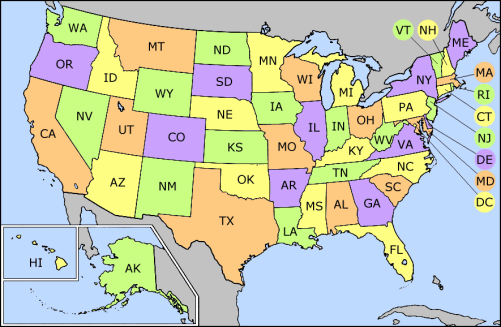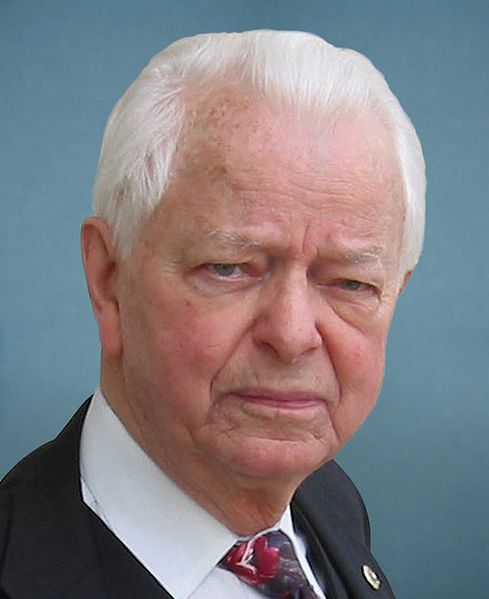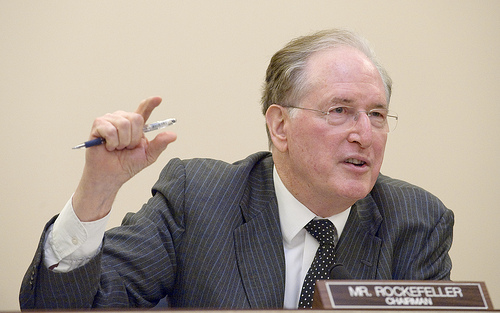
Photo <a href="http://commons.wikimedia.org/wiki/File:US_state_abbrev_map.png">via Wikimedia Commons</a>.
Democrats and Republicans in both the House and Senate are staging attacks on the Environmental Protection Agency’s finding that greenhouse gases endanger public health in hopes of blocking related regulations from going into effect. Across the country, though, states are split on whether the EPA should continue with its legal obligation to regulate planet-warming emissions. Efforts in support of EPA regulation and against it have bipartisan backing from state leaders.
The state attorneys general of Alabama, Virginia, and Texas have filed petitions against the finding. The governors of 18 states and two territories have also joined the call for legislation to block the EPA, including Democrat Joe Manchin of West Virginia. “We feel compelled to guard against a regulatory approach that would increase the cost of electricity and gasoline prices, manufactured products, and ultimately harm the competitiveness of the U.S. economy,” they wrote in a letter to congressional leaders from both parties earlier this month. “We strongly urge Congress to stop harmful EPA regulation of greenhouse-gas emissions that could damage those vital interests.”
The governors of Mississippi, West Virginia, Alaska, Nebraska, Georgia, Kentucky, Nevada, Rhode Island, North Dakota, South Dakota, South Carolina, Utah, Minnesota, Hawaii, Louisiana, Alabama, Virgina, Arizona, Guam, and Puerto Rico signed on to the letter.
The governors don’t specifically endorse either of the two leading legislative options for preventing EPA carbon regulations—a two-year delay from Jay Rockefeller (D-W.Va.) or an outright block from Lisa Murkowski (R-Alaska)—but they do note that “a simple delay of EPA action will do nothing to provide relief to Americans looking for jobs or businesses looking to make new investments in our states.”
The attorneys general of 16 states—Massachusetts, Arizona, California, Connecticut, Delaware, Iowa, Illinois, Maine, Maryland, New Hampshire, New Mexico, New York, Oregon, Rhode Island, Vermont, and Washington, along with New York City—have filed a petition in support of the EPA’s work on climate change. Many of them were litigants in the Supreme Court case that originally prompted the agency’s action. (The states that appear on both lists, Arizona and Rhode Island, have Republican governors and Democratic attorneys general who have split on the EPA finding).
Unless the Senate moves soon with new legislation, the EPA will likely become the new climate change battleground. It will be interesting to see how which side the remaining states choose to take.














